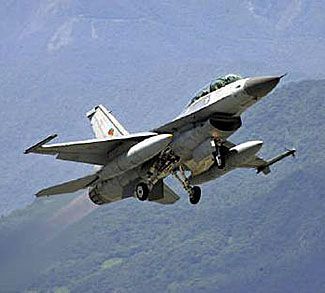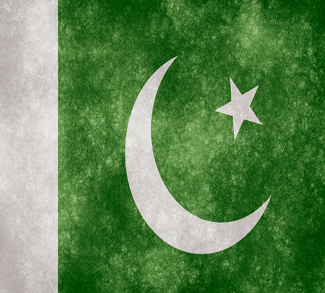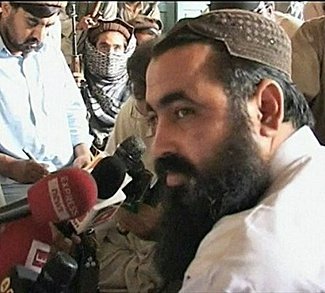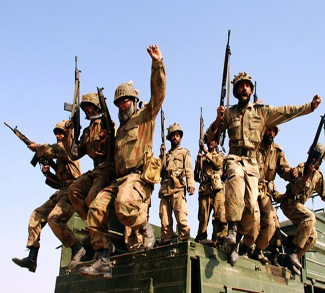FORECAST
Given the recent tripling of U.S. aid to Pakistan without any pre-conditions, Islamabad’s habit of funneling counter-insurgency funds toward the purchase of conventional weapons is likely to continue.
Post-9/11 U.S. aid to Pakistan – a sum totaling more than $8 billion – has largely been used to purchase U.S. arms in the hope of redressing the Indo-Pakistani military balance. A substantial share of said aid comes via U.S Coalition Support funds, money meant to reimburse foreign governments for their involvement in the war on terror.
According to Western military officials, around 70% of the money Pakistan received from these funds was ultimately misappropriated. In other words, Pakistan received reimbursements for fabricated anti-terrorist operations and infrastructure projects that were never dug. The Pakistani government subsequently used the money to buy U.S. military hardware with no counter-insurgency application, such as radar installations.
In 2006 alone, completed arms transfer agreements between the U.S. and Pakistan totaled $3.5 billion. The weapons purchased included F-16s, missiles, and howitzers. Far from addressing legitimate concerns over Pakistan’s ability to fight and win against the Taliban insurgency, U.S. aid is instead funneling U.S. taxpayer money into American defense companies.
Despite the Bush administration’s rationalizations of Pakistani F-16s as “close air support in ongoing [anti-terrorism] operations”, Pentagon officials have since admitted that the Bush administration was aware of Pakistan’s misuse of funds.
Pakistan’s misuse of U.S. aid has a potentially corrosive effect on Indo-American relations in the medium term, creating something of a policy dilemma in Washington. The Obama administration needs to support the Pakistani government’s fight against internal radical forces, but the India relationship has strategic importance for the future – a time when U.S. security concerns are likely to orbit around China.
The Indian government has frequently voiced its disappointment that U.S. aid to Pakistan is not being used to fight terrorism. If the U.S. continues to ignore India’s strategic interests, Washington runs the risk of losing diplomatic leverage with New Delhi. Perhaps this dynamic is already starting to play out in the form of recent American requests that India reduce troop levels on the Pakistani border, a suggestion that was tidily rejected by the Indian government, whom in turn claimed that Pakistan was the one amassing troops.
The lack of any new oversight process in the recently passed bill tripling aid to Pakistan suggests that aid will continue to be misspent, and thus the Indo-American relationship will suffer. There was a time when the bill included pre-conditions for the receipt of U.S. aid, including: U.S. access to Pakistani officials in the AQ Khan proliferation network and improvement in Indo-Pakistani relations. All conditions were removed by the time the bill went to a vote.
U.S. lawmakers have been particularly sensitive about bringing too much pressure to bear on Pakistan. Terrorism-related violence is killing more and more Pakistanis – 3,559 in 2007, up from 189 in 2003. Every passing week brings new Taliban suicide attacks in major Pakistani cities such as Peshawar and Lahore. Ever-increasing numbers of Pakistanis blame the U.S. for the rising tide of violence, which they see as a by-product of American involvement in Afghanistan.
Ultimately, it is safe to assume that as long as Pakistan continues the fight the Taliban, the U.S. government will continue to write blank checks.
SUMMARY OF EVENTS: June 8 – 15, 2009
NORTH AMERICA
United States
The Pentagon confirmed one of South Asia’s worst kept secrets – Pakistan diverted billions of dollars of U.S. aid to boost offensive capabilities against India.
U.S. forces failed to follow procedures in carrying out deadly air strikes last month in western Afghanistan that killed dozens of civilians, the Pentagon said Monday.
A former prisoner held at Guantanamo Bay says he was never interrogated about the reason the U.S. said they had arrested him for — even after seven years in captivity.
The congressional panel investigating what happened to all that bank bailout money has issued a subpoena to the Federal Reserve, asking them to hand over all documents relating to the takeover of Merrill Lynch by the Bank of America.
A senior U.S. official has told the BBC Washington decided not to tell London ahead of time about a deal to resettle four Guantanamo detainees in Bermuda.
Iran and North Korea are working together to develop ballistic missiles and have made significant progress, the head of the Pentagon’s Missile Defense Agency has said.
WESTERN EUROPE
Britain
Six members of London’s metropolitan police force are the focus of a criminal investigation after a corruption probe revealed allegations by a serving officer that detectives waterboarded suspects allegedly caught with a “large amount” of marijuana.
A London police officer is under investigation following multiple complaints that he attacked protesters during the G20 financial summit earlier this year.
France
Two passengers with names linked to Islamic terrorism were on board the Air France flight which crashed with the loss of 228 lives, it has emerged.
Italy
Six people have been arrested on suspicion of planning an attack on the Group of Eight summit next month in Italy, police said Thursday.
EASTERN EUROPE
Russia
Unidentified assailants Wednesday shot and killed a senior judge in Russia’s volatile southern republic of Ingushetia, the latest in a series of attacks in the predominately Muslim region.
MIDDLE EAST
Iran
A senior Revolutionary Guard accused President Mahmoud Ahmadinejad’s pro-reform opponents on Wednesday of waging a “velvet revolution” in Iran, at the climax of a bitter presidential election campaign.
Iraq
A car bomb blew up Wednesday in a packed outdoor food market in one of the most peaceful areas of Iraq’s Shiite south, killing about 30 people and wounding dozens more.
The head of Iraq’s biggest Sunni Muslim parliament bloc was killed at a mosque on Friday, officials said, an assassination which could undermine efforts for sectarian reconciliation in Iraq.
EAST ASIA
China
The Chinese government wants all computers sold in China after July to come with software that automatically censors the internet.
Japan
Japan is investigating reports two of its citizens were detained in Italy after allegedly attempting to take $134 billion worth of U.S. bonds over the border into Switzerland.
North Korea
North Korea convicted two American journalists and sentenced them Monday to 12 years of hard labor for crossing into its territory, intensifying the reclusive nation’s confrontation with the United States.
North Korean media hints that a U.S. pledge to extend its nuclear umbrella to Japan and South Korea would be considered a ‘declaration of a nuclear war’ in the troubled peninsula.
SOUTH ASIA
Myanmar
Myanmar’s detained opposition leader Aung San Suu Kyi believes her trial is an attempt by the country’s ruling generals to prevent her from running in multi-party elections next year, her lawyer said.
Pakistan
Suicide attackers shot their way past guards and set off a massive blast outside a Peshawar luxury hotel where foreigners and well-to-do Pakistanis mixed, killing at least 11 people and wounding 70, officials said.
Thailand
Thailand’s army chief on Tuesday accused separatist militants of killing 11 people at a mosque in the country’s south, denying claims that security forces were behind the attack.
AFRICA
Nigeria
Victims of murder, torture and other abuses by Nigeria’s former military government on Tuesday hailed a landmark out-of-court settlement with Royal Dutch Shell over its alleged complicity in the crimes.
The Movement for the Emancipation of the Niger Delta (MEND), the main rebel group in southern Nigeria, said Wednesday it had set a pumping station of U.S. oil giant Chevron on fire.
Nigeria’s most prominent armed group claimed Friday that government troops had killed seven civilians in the restive Niger Delta region, a key oil-producing area, but the military denied the incident.
Somalia
Heavily-armed Ethiopian soldiers crossed into central Somalia on Friday and entered a town controlled by a pro-government militia nearly 30 kilometres (19 miles) from the border, residents said.




